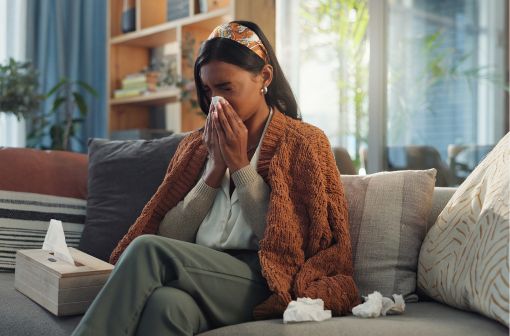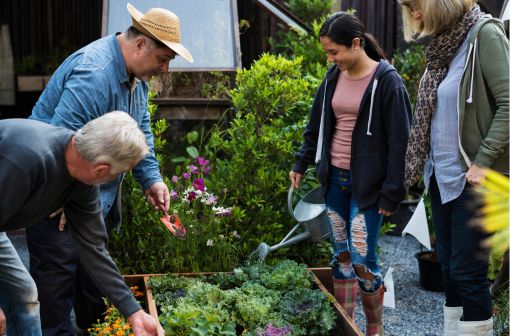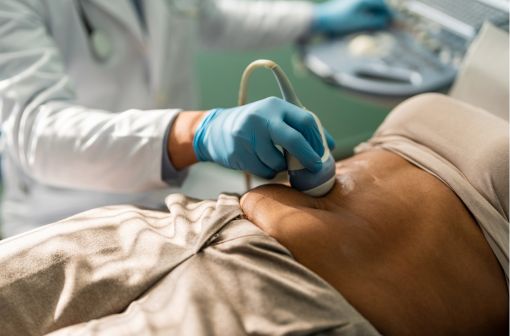“Spending more time outdoors improves our mood, attitude and sense of wellness.” – Kevin Holohan, Senior Physiotherapist for Remedy Healthcare.
If COVID-19 and social distancing rules have had you climbing the walls inside your home, you’re not alone.
For people who thrive on keeping active – and for those looking to improve their physical and mental wellbeing – it’s been a frustrating period having to modify routines and training regimens to keep in line with restrictive COVID-19 conditions.
However, as the weather warms up and restrictions ease, now is the time to get out of the house and experience the mental and physical benefits associated with being outdoors.
According to research, people who exercise outdoors get a bigger boost to their physical and mental wellbeing than those who exercise inside.
Not only will the warmer weather thaw us out from a long winter but getting out of the house means getting a healthy dose of Vitamin D that can help – among other things – improve sleep and enhance your mood.

Why getting outside, even for just a short time, is beneficial
Kevin Holohan, Senior Physiotherapist for Remedy Healthcare, says getting outdoors isn’t just about physical fitness.
“It’s a huge component of de-stressing,” he says. “And it’s where we receive most of our daily Vitamin D requirement, as 90% comes from being outside in the sunshine. Fresh air and sunlight also improve short-term memory and boosts your immune system to help us fight off infections and diseases.
“Spending more time outdoors improves our mood, attitude and sense of wellness.”
When we get outside and exercise, or when we join in with groups or team activities we get an endorphin and encephalin release – these are your body’s natural “happy drugs” and strongly influence our mood and emotions.
“Getting outside also helps you keep your thinking, learning, and judgment skills sharp as you age,” Kevin says. “Exercise stimulates your body to release proteins and other chemicals that improve the structure and function of your brain.
“It will also improve your sleep patterns, meaning you can fall asleep faster and stay asleep longer, enabling your body to function better.”
In addition, if you’re older, staying active will enable you to remain independent for longer. For older adults, doing balance and muscle-strengthening activities in addition to moderate-intensity aerobic activity can help reduce your risk of a fall.
Regular exercise, even later in life, can also slow the loss of bone density that comes with ageing. Doing muscle-strengthening activities can help you increase or maintain your muscle mass and strength.
Getting outside
If you haven’t previously been as active as you’d like, and you’re looking to get outside and get moving, there are plenty of good introductory activities and exercises you can do.
Sonya Cotton, Remedy Healthcare State Services Lead, South Australia, says it’s important to start out slow and easy.
“Start out by increasing your walking – you can also increase speed of your gait and alternate fast and slow,” she says.
“It’s also good to remember that even incidental exercise, such as walking to the shops or taking the stairs instead of the lift, is a good way to build up your exercise tolerance.
“For an exercise program it’s always best to consult an allied health specialist such as a physio, exercise physiologist or a qualified and experienced personal trainer.”
It’s also critical to do proper pre- and post-exercise stretching to limit the risk of muscle injuries.
At the end of the day, it all boils down to getting outdoors and just enjoying some fresh air and sunshine.
Kevin says making everyday events more active is a good way to get outside more often.
“You can get out with friends and family, and keep track of your progress,” he says. “You can also make exercise fun by listening to music or podcasts. Also, find some activities that you can do even when the weather is bad, plan and set some goals, and reward yourself when you achieve them.”
Disclaimer: Information provided in this article is not medical advice and you should consult with your healthcare practitioner. Australian Unity accepts no responsibility for the accuracy of any of the opinions, advice, representations or information contained in this publication. Readers should rely on their own advice and enquiries in making decisions affecting their own health, wellbeing or interest.


